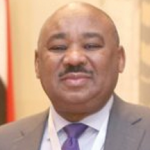Abstract
The 1990s ushered the world not only into a democracy wave, following the collapse of the former Soviet Union, but also into a wave of Fiscal Rules, where the number of countries adopting this fiscal regime steadily rose from only 10 in 1990 to 97 in 2009. Countries that depend on hydrocarbons, in general, tend to suffer from fiscal policies that are highly susceptible to energy price shocks. This provides incentives for implementing fiscal stabilization instruments in the form of fiscal rules. However, the resource-rich but largely democracy-deficient MENA region has been a fiscal rules-free region. Against this backdrop, this paper asks two fundamental questions: Why have MENA countries chosen not to adopt fiscal rules? And what role, if any, might have resource dependence and political institutions played in this outcome? We find that the lack of democracy and the weak systems of political checks and balances that characterize MENA countries appear to have outweighed the positive impacts of oil resources, so that fiscal instability persists despite ample oil revenues. The nascent Arab democracy spring might tip the scale in favor of adopting fiscal rules by emerging democratic governments in the region. However, stronger systems of political checks and balances are also needed and, unfortunately, are not necessarily a certain outcome of the current political changes. . A move toward inflation targeting regimes, as proposed for Tunisia and Egypt, might also provide additional impetus for adopting fiscal rules as the evidence of Chile and other inflation-targeting countries suggests.
Arabic Abstract:
بشرت فترة التسعينيات في العالم ليس فقط بموجة الديمقراطية، في أعقاب انهيار الاتحاد السوفياتي السابق، ولكن أيضا بموجة من القواعد المالية ، حيث ارتفع عدد البلدان التي تعتمد هذا النظام المالي باطراد من 10 فقط في عام 1990 إلى 97 في 2009 . وبشكل عام تعاني البلدان التي تعتمد على الهيدروكربونات من السياسات المالية التي هي عرضة لصدمات أسعار الطاقة. وهذا يوفر الحافز لتنفيذ الاستقرار المالي في شكل قواعد مالية. ومع ذلك ، وان كانت منطقة الشرق الأوسط غنية بالموارد الطبيعية الا انها منطقة ناقصة الديمقراطية وخالية من القواعد المالية. على هذه الخلفية، فإن هذه الورقة توجه سؤالين أساسيين : لماذا اختارت بلدان المنطقة عدم اعتماد القواعد المالية؟ وما هو الدور، إن وجد، الذي لعبته كل من المؤسسات السياسية والاعتماد على الموارد في هذه النتيجة؟ نجد أن غياب الديمقراطية والنظم السياسية الضعيفة والاأرصدة التي تميز بلدان المنطقة على ما يبدو تفوق الآثار الإيجابية من وجود الموارد النفطية، بحيث ان الاستقرار المالي استمر بالرغم من وفرة عائدات النفط. قد يرجح ربيع الديمقراطية العربية الوليد كفة الميزان لصالح اعتماد القواعد المالية عن طريق الحكومات الديمقراطية الناشئة في المنطقة. ومع ذلك ، هناك حاجة أيضا إلى تقوية نظم الضوابط والموازين السياسية، و هي للأسف، ليست بالضرورة النتيجة المتوقعة من التغييرات السياسية الحالية. . وقد يكون التحرك في اتجاه أنظمة استهداف التضخم، على النحو المقترح لتونس ومصر ، يمكن ايضا ان توفر حافزا إضافيا لاعتماد القواعد المالية كما يشيرالدليل على تشيلي وغيرها من البلدان التى تستهدف التضخم.

Research Fellows
Ibrahim Elbadawi
Development Studies & Research Forum, Dubai

Senior Associates
Raimundo Soto
Associate Professor of Economics, Pontificia Universidad Católica...


